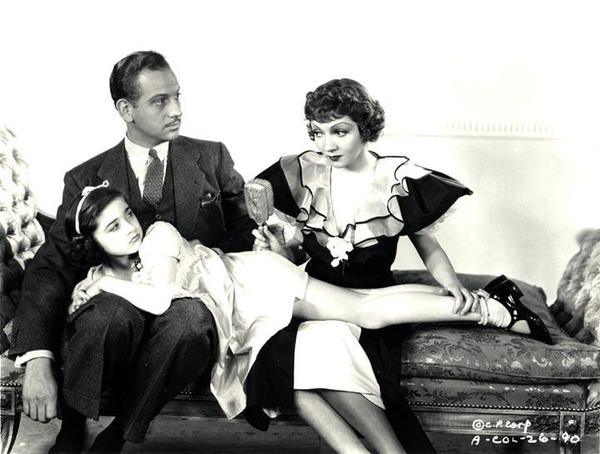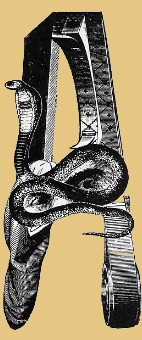Are Perfumistas Spoilt Brats? And The Hotel-Bathroom Test to Replace the Desert-Island One {Scented Thoughts}

 As I am smelling the drydown of the new Trésor in Love in the quiet of the night, I have to ask myself: aren't perfumistas simply spoiled brats when it comes to fragrance? Honestly, this smells good. Earlier on today, while I did give it good points I was also being critical of its detergent-like white musks leanings. Its caving-in to "commercial" tastes.
As I am smelling the drydown of the new Trésor in Love in the quiet of the night, I have to ask myself: aren't perfumistas simply spoiled brats when it comes to fragrance? Honestly, this smells good. Earlier on today, while I did give it good points I was also being critical of its detergent-like white musks leanings. Its caving-in to "commercial" tastes.But it occurred to me that if I were smelling this perfume as my only possible fragrance to be had at hand, that I would have found, say, in a bathroom hotel in a foreign country, I would be very happy with it.
So, I propose that from time to time when the hour of judgment comes, instead of pursing lips at the banality of this and that note and sighing with dissatisfaction, just to remember that in each (good) fragrance there is something inviting about it, a friendly voice, a sense of the familiar and human warmth. It may not be absolutely original if you compare it to the competition on the market trying to decide which perfume it is best for you to purchase, but it is good...
It is satisfying for the person who needs only one fragrance, and not as some perfumistas have, hundreds of perfumes. A reader contacted me once and even lifted the veil on thousands of fragrances. In such cases, you get a distorted picture of reality and forget the person who is happy with just one scent at a time because it's nice to wear a perfume but she or he has other more pressing issues that occupy their mental space than to get excited or antsy about the next best thing.
I am not blaming perfumistas, and I also think that the fragrance industry is encouraging this purchasing habit which can be hard to resist. You can be a happy perfume connoisseur too no doubt. But I think that it's good not to lose touch with common sense and realize that a good perfume has its place in the world. And "good" is also an interesting quality that is not easily reached even it it does not necessarily bear any pretension to reform, avant-garde and revolution.
Instead of thinking about what ultimate fragrance you would carry with you if you had to be stranded on a desert island and you are running through your perfumista's files trying to decide, you can reverse the test and think what would I think about this perfume if it were the only one that was actually to be found on the island? Personally, there are still subpar fragrances that I would not wear. There is also theoretically the risk of finding bottled perfume less suave than the natural smells on the island. But if you replace the desert-island test with the bathroom-hotel-in-a-foreign-land test, then the thrust of your reasoned judgment might change and you might open up to a fragrance instead of sniffing at it all too readily.
Pic: She married her boss, 1935









When I first started writing reviews, I wrote a few truly harsh ones. But the more I sniffed, the more I realized that (a) my attitudes about a scent could change b/c of season/temperature/body chemistry shifts/etc., and (b) even if it wasn't for me, someone else probably loved it. I write very few complete pans now (though I still write a few) because I just can't bring myself to be hateful about something that might be really beautiful on or for someone else. Plus, after I tried one scent that smelled so much like my grandfather (long since passed) that I broke down in tears, I realized that other scents would do that for other people and I could be a little gentler with my poison pen. So yes, I agree. A foreign bathroom test is a good one.
Interesting Diana, for me it's the reverse. I tended to be more understanding when I started writing reviews but overtime, the industry's knack for releasing copycats got on my nerves. That's when I let out a few times some less-than-understanding reviews. But then, I also realize it's not fair to the person who is not interested in a systematic overview of the perfume world. So keeping in mind the person who enters a boutique and wants to pick a good perfume and trying to be in her or his shoes helps me temper my biases as a perfume writer.
But you raise a core issue for people who are interested in that: is perfume criticism possible? I've been thinking about that lately. The short of it for me is I think yes as a genre of literary writing. Does it have any relationship of truth to perfume, that's more complicated. What I remain convinced of however when perfume writing is intellectually honest and not political or plain sloppy, is that it can reflect a sincere attempt to elucidate the perfume(s) you are writing about. But maybe that's ultimately an illusion.
I dove into the world of scent at age 5, and my only `rule` was try everything; price & package don`t interfere w/ the beauty - or not - of the fragrance. Nothing beats NOT looseing out because you listened to someone else! :-)
This answers the "brat" part of my question :) Perfumista-hood can strike very early. I remember my first perfume fascination from around that time too, at about 5 years old but my first active purchase of a scent was not before 9 years old, if I remember correctly. I remember some time ago overhearing a little girl on the street who seemed to be 6-7 years old who was literally begging her mom to buy her a perfume.
You're absolutely right about checking out the fragrances yourself instead of relying 100% on someone else to let you know what's good and what's not. People who do that are more into the social exchange and identity, clan politics around perfume than into perfume per se.
Hi Marie-Helene! Great post! I was thinking about this myself the other day - wondering if becoming more and more critical has actually damaged my ability to appreciate a fragrance for what it is. A sort of snobbism starts to emerge without even realizing it...especially with reformulations that just don't live up to former iterations. It's maddening, really. Why don't they just discontinue a fragrance if they don't have the budget or materials to do it right? Why mangle it?
OK, that was sort of a segway, but the more we perfumistas "smell" the more we're able to identify cheap, offensive-smelling ingredients. Does that taint and damage our appreciation? Somewhat. We're educated in the area, and won't settle for hype. I'm personally proud to be in this category, because I really enjoy the adventure of sniffing new fragrances and looking for stellar formulations. It's fun! At the same time, though, it can be a bit burdensome!
Thank you for hitting the reset button and reminding us that's it's all an art form - even the cheap drugstore scents can be appreciated for what they are. I love everything about perfume, and don't want to forget that. I really do wish, though, that the market would take their chunks of $ and focus more on developing a minimal number of quality scents made with quality ingredients instead of saturating the market with release after release of thinner scents with cheaper ingredients, thinking that change and "new" is where it's at...
Hi Karen,
Glad you liked the post. You evoke many interesting points. One I would like to answer right away here because I have some data about it and it's kind of a shocker is that I realized while doing some research about it that some mass-marketed perfumes cost the same price per liter as the Chanel Les Exclusifs!!! So, drugstore does not necessarily mean bad quality.
I just wanted to go back to the innocence of an approach where you discover a perfume outside of schools of aesthetics, issues with "borrowings", edginess etc and then just between you and the perfume something positive happens. It would be the difference between eating a good bread and a bread that shows research. It's already hard to make an all-around good bread, honestly (there are hoards of ok breads).
I agree completely! So many people are such fragrance snobs. I would bet my house on it if I were to give some people a bottle with an, albeit decent, designer fragrance in and told them it from a new ultra cool niche house they would just love it!
I believe you have to treat each fragrance for what it is. Do you really expect to get something wildly unusual and different containing the purest oils from a rose only grown in outer Mongolia that blooms for 3 hours a year, when it costs £30 a bottle? Me thinks not! I can usually find something pleasing in just about all fragrances. Yes, sometimes they do smell a bit synthetic or similar to something else, but there are very few I find totally repulsive!
You know, this trickster blind testing has been conducted for wine and the study that did it showed that knowing the price tag and rare provenance of a wine bottle while they had substituted said original wine for an average priced one made people physiologically secrete endorphins and made them rate highly an average wine.
As for fragrance, perfume author Susan Irvine did a blind testing session if I recall correctly where Old Spice was actually consistently rated high and I believe the No. 5 was not as popular.
If I may add a point about rarity: moreover it is not because an ingredient is rarer that it is better!